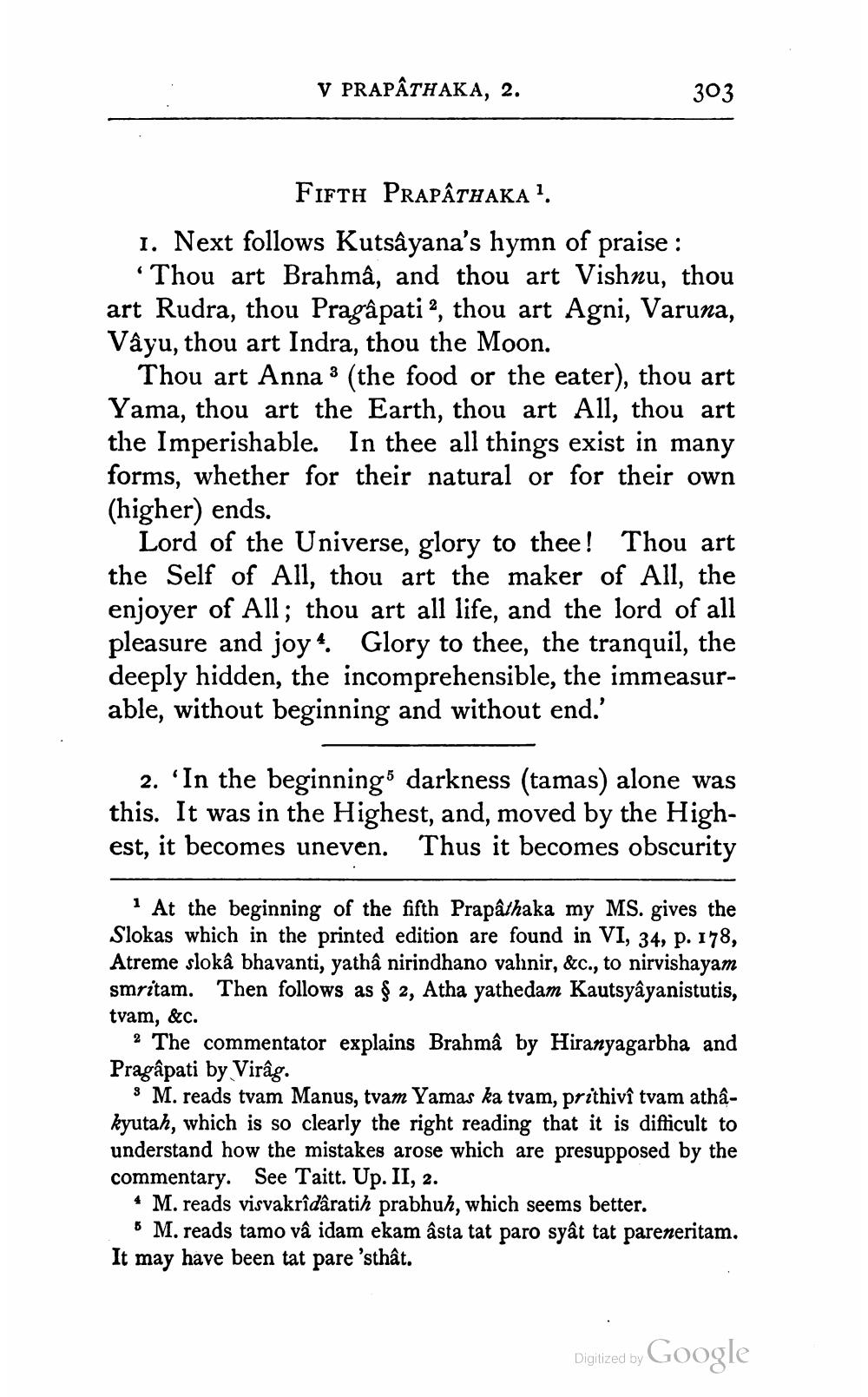________________
V PRAPATHAKA, 2.
303
FIFTH PRAPÂTHAKA 1.
1. Next follows Kutsâyana's hymn of praise: 'Thou art Brahmâ, and thou art Vishnu, thou art Rudra, thou Pragâpati 2, thou art Agni, Varuna, Vâyu, thou art Indra, thou the Moon.
3
Thou art Anna (the food or the eater), thou art Yama, thou art the Earth, thou art All, thou art the Imperishable. In thee all things exist in many forms, whether for their natural or for their own (higher) ends.
Lord of the Universe, glory to thee! Thou art the Self of All, thou art the maker of All, the enjoyer of All; thou art all life, and the lord of all pleasure and joy. Glory to thee, the tranquil, the deeply hidden, the incomprehensible, the immeasurable, without beginning and without end.'
2. 'In the beginning darkness (tamas) alone was this. It was in the Highest, and, moved by the Highest, it becomes uneven. Thus it becomes obscurity
1 At the beginning of the fifth Prapâ/haka my MS. gives the Slokas which in the printed edition are found in VI, 34, p. 178, Atreme slokâ bhavanti, yathâ nirindhano vahnir, &c., to nirvishayam smritam. Then follows as § 2, Atha yathedam Kautsyâyanistutis, tvam, &c.
2 The commentator explains Brahmâ by Hiranyagarbha and Pragâpati by Virâg.
3 M. reads tvam Manus, tvam Yamas ka tvam, prithivî tvam athâkyutah, which is so clearly the right reading that it is difficult to understand how the mistakes arose which are presupposed by the commentary. See Taitt. Up. II, 2.
M. reads visvakrîdâratih prabhuh, which seems better.
5 M. reads tamo vâ idam ekam âsta tat paro syât tat pareneritam. may have been tat pare 'sthât.
It
Digitized by
Google




